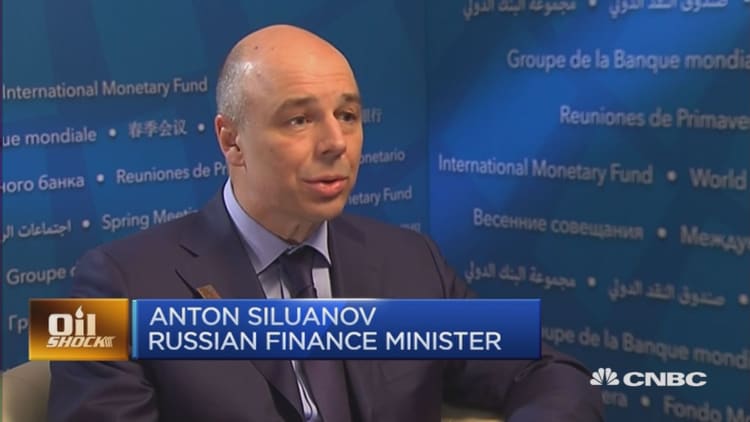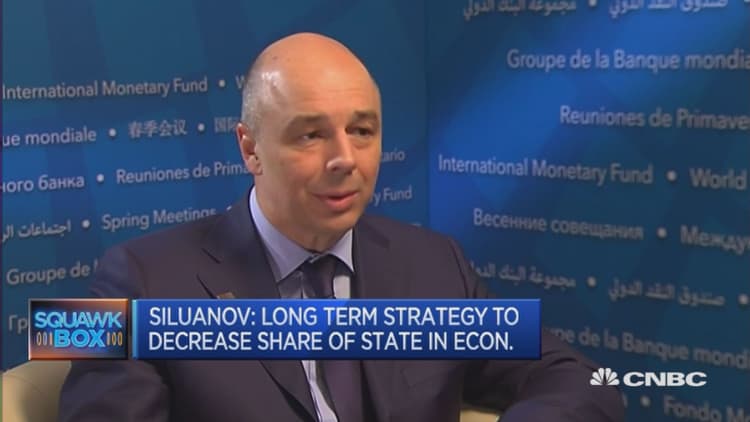

All eyes are on Doha this weekend where a meeting between OPEC and non-OPEC oil producers is being held to discuss freezing oil production output at current levels, but the finance minister of major oil exporter Russia poured cold water on any hopes for a deal.
"I want to say that we don't expect any changes in the price in spite of the negotiations which are being conducted currently with oil-extracting nations," Anton Siluanov told CNBC on Thursday.
Oil prices have risen this week in anticipation of the meeting in Qatar on Sunday with Brent futures currently trading at $43.90 a barrel and U.S. WTI at $41.57. Expectations among analysts for any kind of deal between the world's rival producers are low, however. OPEC member Iran is unlikely, for example, to agree to cut production levels when it is trying to recover its oil industry after years of economic sanctions.
Siluanov told CNBC that Russia was trying to find ways to work with the current oil price or around $40 a barrel and had based its economic projections on such a price.
"Our economic plans are correlated in relation to the current oil price - about $40 a barrel. That is why we see that in the conditions of the slowing down of world economic growth rates, the accumulation of oil reserves by producers, there are no serious grounds for talking about increasing oil prices. We see that we will have to work within the conditions where oil prices fluctuate around $40 a barrel," he said.
Non-OPEC member Russia is one of the world's largest oil exporters but its economy has been hit by a double-whammy of low oil prices and international sanctions imposed on it for its annexation of Crimea and role in the pro-Russian uprising in east Ukraine.
Lower oil exports have hit government revenues hard but the finance minister said that the oil price had presented Russia with an opportunity to "further develop non-raw material industries" and diversify its economy away from oil.
"The economy's dependency on high oil prices which existed, in reality hurt other industries. High-tech industries and VAT industries were not developed because we were buying from external markets while selling expensive oil. Now this is no longer the case. We have to develop our own industries and this will create a more stable economy as well as profit base for our budget," he said.
"We are ready and we plan to work within the current price categories and for Russia this is quite acceptable and correct."
Privatization plans
One of the ways in which Russia is seeking to tackle its budget deficit is by selling stakes in state-owned assets with banks and energy companies eyed as possible targets for privatization.
Siluanov said that the country had "certain privatization plans for this year. On the one hand, we need money to help finance the budget deficit, on the other, it's a long-term strategy that we should decrease the share of the state in the economy."
He said the state planned to sell a 19.5 percent stake in Rosneft. It currently believes the stock is worth 650 billion rubles ($9.82 billion). He believed some kind of deal could be expected in the second half of the year.
Russian President Vladimir Putin has said previously that he was looking for a "non-greedy investor" with some taking that reference to be a slight aimed at BP and its chief executive Bob Dudley who used to be CEO of TNK-BP, a troubled joint venture between BP and a group of Russian investors before BP sold its stake to Rosneft.
Siluanov laughed off the comment but said that as the share price was rising, a "greedy investor would not be able to participate in the privatization" but added that the state would consider all offers.






